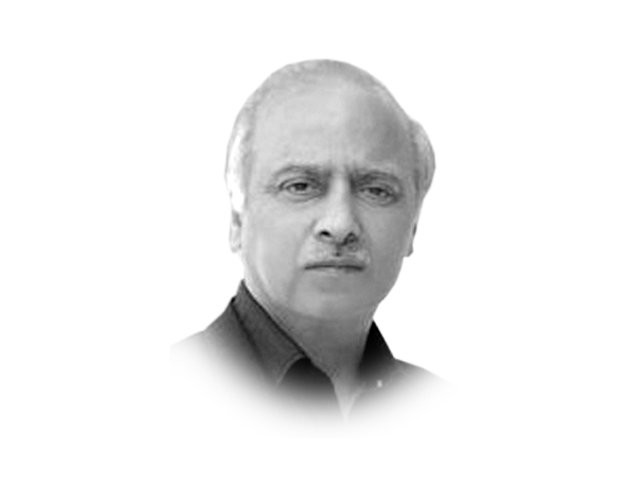Sorry state of bar & bench
Defence and prosecution lawyers, for instance, often fix hearings through connivance to accommodate each other

The writer heads the independent
Centre for Research and Security Studies, Islamabad
Defence and prosecution lawyers, for instance, often fix hearings through connivance to accommodate each other. This is what a prominent counsel admitted during the commercial break of a TV show we were both participating in.
In front of the camera, he was defending the bar but off the camera, he retreated into the defensive, conceding that the black coats, too, were often responsible for prolonged litigation and encouraging crime and terrorism by taking up cases they shouldn’t — from a sociopolitical point of view.
Similarly, another brilliant jurist stood on the Supreme Court floor to defend a property tycoon in 2011. After I repeatedly pressed him for an answer as to why he did so, all he said was, “I did so because the president had asked me to.” As if he possessed no conscience of his own!
Is the bench also driven by similar considerations or does it go just by the black and white as enshrined in the Criminal Procedure Code (CrPC)?
Scores of pending cases before the superior and subordinate courts relate to the granting of stay orders — regardless of the efficacy or legitimacy of the complaint. The Capital Development Authority (CDA), for example, is currently locked in at least 1,160 such cases that litigants filed after administrative actions by the CDA against encroachments, illegal structures or inappropriate use of buildings.
A document the CDA submitted before the Supreme Court, for instance, says that some 2,262 houses in the capital are being used for “other than the actual purposes”. The CDA says that owners of these properties, including government agencies, have obstructed roads, streets and footpaths in different residential sectors of the city by erecting fences or walls and placing concrete blocks in the guise of security tiers. Inconvenience and nuisance to the residents in the vicinity of these commercial entities notwithstanding, the frequent stay orders against the CDA’s administrative actions underscore that the bar and the bench both obstruct law enforcement.
Repeatedly, the bench anchors its arguments in the law but the question staring us all in the face today is: can the laws framed in 1860 really hold in the face of unusual challenges of today’s times? Or should the judges always go back to fundamental rights when dealing with different issues?
Maulana Aziz of Lal Masjid is a case in point. He has been facing various criminal charges and publicly spoke of having thousands of suicide bombers at his command, but he still delivered sermons at the mosque. Similarly, following the July 2007 operation, a two-member Supreme Court bench not only bailed him out but also ordered the government to provide an alternative plot to Aziz for constructing Jamia Hafsa — which, in any case, was an illegal construction.
Many judges and lawyers tend to deploy the fundamental rights’ argument even in cases where the accused — as a matter of public knowledge — has ostensibly violated the CrPC or even the Anti-Terrorism Laws. Such cases demand pragmatism and not the letter and spirit of the law. World history is replete with deviations from the law in unusual circumstances.
That is why one wonders whether the bench and the bar always need to embed their rulings and arguments in the existing legal scripts or also keep in mind the interests of the larger community, i.e., the citizens and the state of Pakistan? Do they have a moral duty to the society too or are they just there to berate and chide others in a vacuum?
If their response to this critical question is ‘No’, then unfortunately, the only conclusion to draw is that no amount of political rhetoric or avowed commitment to the rule of law under the current circumstances stands any chance of success against terrorism and crime.
Published in The Express Tribune, February 4th, 2015.
Like Opinion & Editorial on Facebook, follow @ETOpEd on Twitter to receive all updates on all our daily pieces.















COMMENTS
Comments are moderated and generally will be posted if they are on-topic and not abusive.
For more information, please see our Comments FAQ